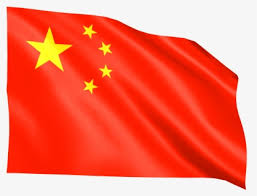Recently, I was seated at a dinner party beside a young lady whose life has spanned the globe. Let’s call her Amy.
Amy is an American who lived overseas for a significant stretch of her childhood, before returning to the U.S. for college. After graduation, she left again to attend graduate school.
Along the way, she met and married a European, who had hopscotched Europe and then traveled to the U.S. in his career pursuits.
Now, Amy and her husband live and work in Berlin.
The couple seem citizens of the world, their lives an idyl of globalism and their horizons limitless in an interconnected and interdependent international system.
Yet, today, we are seeing more of the downside of globalism. Beware any phenomenon embraced so passionately that it becomes an “ism.”
At dinner, I asked Amy how Germans today view their former leader, Angela Merkel. In her heyday, Merkel was considered by many to be the visionary leader of the whole of Europe.
She led on climate change, closing down Germany’s coal mines and shuttering its nuclear plants (after the disaster in Fukushima, Japan) in order to launch an ambitious plan to develop renewables. Except, of course, she did all of this in heavy reliance upon Russian natural gas in the meantime.
Now winter looms with, at best, severely restricted supplies of Russian gas.
Before the reunification of Germany, the end of the Cold War and the collapse of the Soviet Union, West Germany maintained a well-armed and well-trained armed force of about 500,000 troops. Afterward Germany effectively disarmed and gorged on the “peace dividend.”
For over a decade, the German armed forces have consisted of less than 200,000 poorly trained and ill-equipped troops. Military hardware – aircraft, tanks and submarines – was not combat-ready or was simply inoperable. This was dangerously irresponsible, no matter that we know now that the Russian military was overrated.
In 2015, Merkel admitted over one million Muslim refugees from the middle east, saying famously “We can do this.” The refugees were predominantly young adult males, who have not really assimilated. They represent one in eight of the important male population cohort of 25-to-39 year-olds that now numbers about 8 million. Is such a massive change in population characteristics and culture in the genuine self-interest of any nation?
As my conversation with Amy progressed, others jump in. The conversation widened from Germany and its dependency on Russia to a more general discussion of free trade, which is nothing if not a system of international dependencies. Inevitably this led to a discussion of U.S.-China relations.
Globalism was built on the previously unchallenged idea of free trade, whose foundation is the economic concept of comparative advantage. If all nations focus on their natural advantages, collectively the world will benefit. Yet, the general feeling is that China did not exploit its natural advantages, so much as take unfair advantage — with many multi-national corporations complicit.
Low-cost Chinese labor idled thousands of U.S. factories and threw millions of American factory workers out of work. Some have said this was inevitable. Yet it happened too fast for American workers to adapt, and there was little government effort to incent American multinationals to stay in the U.S. or to assist workers.
Belatedly, the U.S. and other nations are becoming more mercantilist, pursuing economic policy to advance national self-interest, rather than policies to optimize outcomes for all nations. The experience with Russian gas has put an emphasis on economic self-sufficiency, not interdependence. Congress has appropriated funds for construction of computer chip factories here in the U.S.
In foreign affairs, there is a realization that war and armed conflict is not a thing of the past – nor confined conveniently to certain isolated hotspots.
President Biden has imposed a ban on the export of computer chip technology to China, effective immediately. Apparently, he has learned from the war in Ukraine that advanced technology is the key to modern warfare, far more so than even its most ardent advocates had believed beforehand. To deny China state-of-the-art technology is a marvelously artful move to defend democratic Taiwan in face of threats from the mainland. It is also the natural complement to the policy of subsidizing domestic chip capacity.
Davos-style globalism and unfettered free trade have been discredited. Pursuing national interest is no longer seen as isolationist.
Hopefully, Amy’s international lifestyle will still be possible. Zealous nationalist protectionism is no better than blind globalism. Yet, Germany must rearm, despite that Russia is now a diminished threat. Germany should help the U.S. defend freedom and Western values, which are the shared values of both nations. In the same spirit, the U.S. should increase its natural gas production to help Germany and Europe through the winter. And American business should re-shore, both to create jobs in America and to reduce conflicts of interest in the growing U.S.- China confrontation.
![]()
Red Jahncke is a nationally recognized columnist, who writes about politics and policy. His columns appear in numerous national publications, such as The Wall Street Journal, Bloomberg, USA Today, The Hill, Issues & Insights and National Review as well as many Connecticut newspapers.







